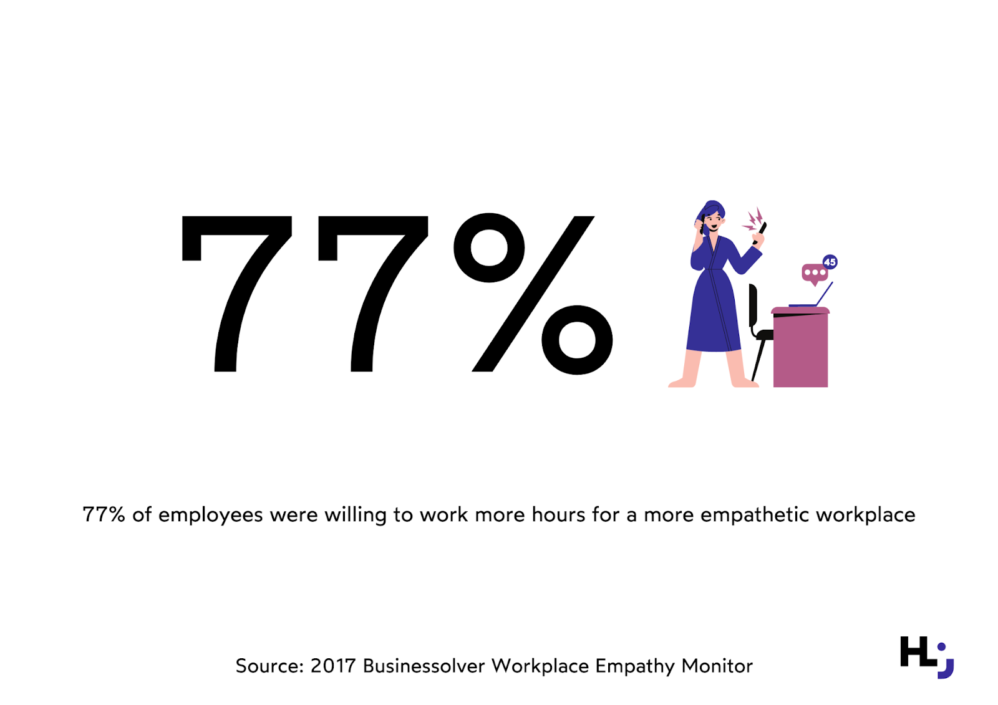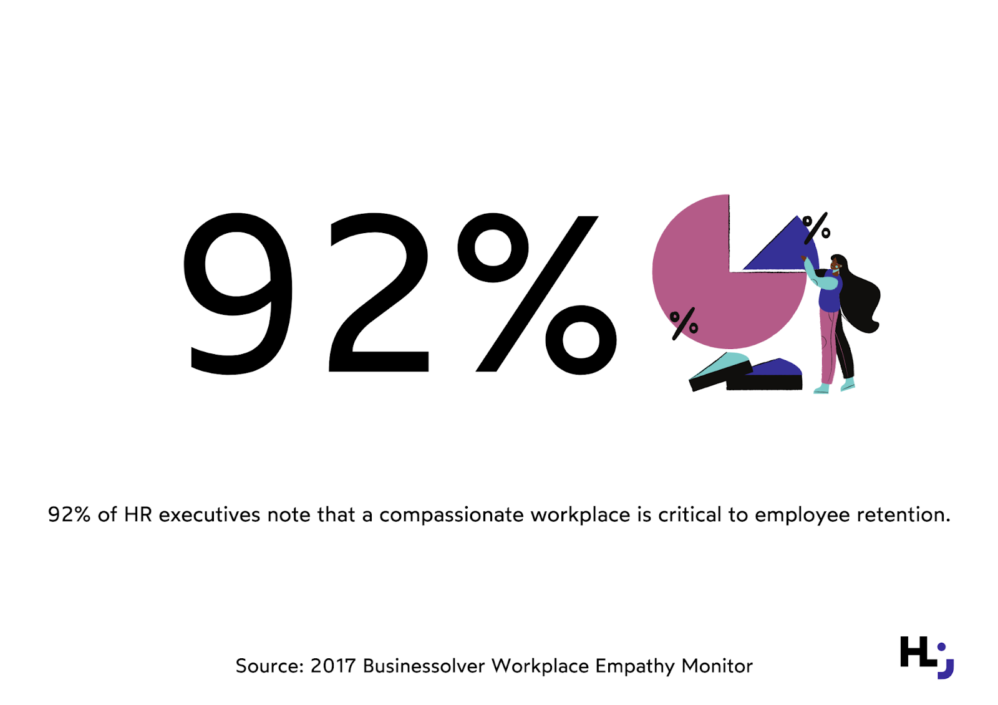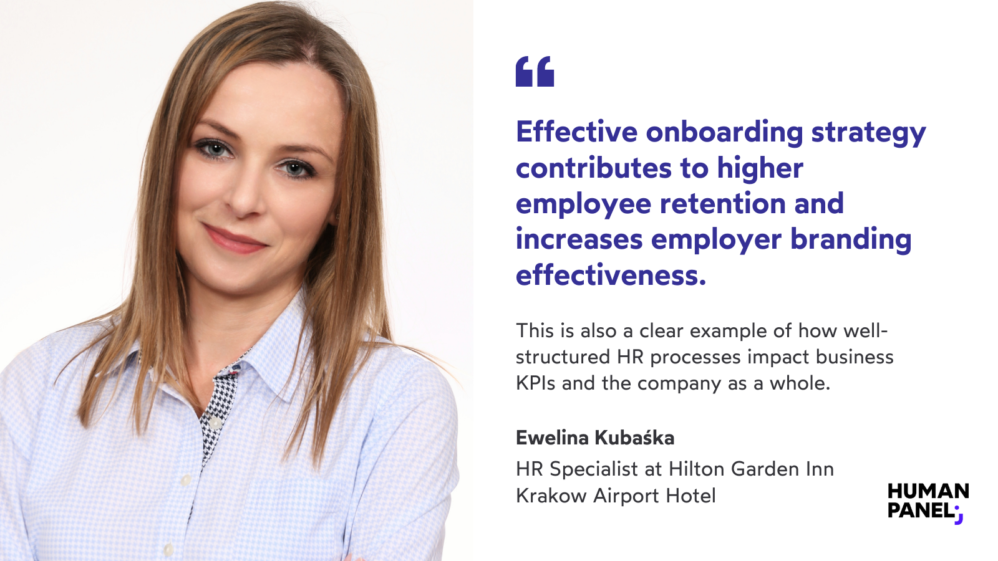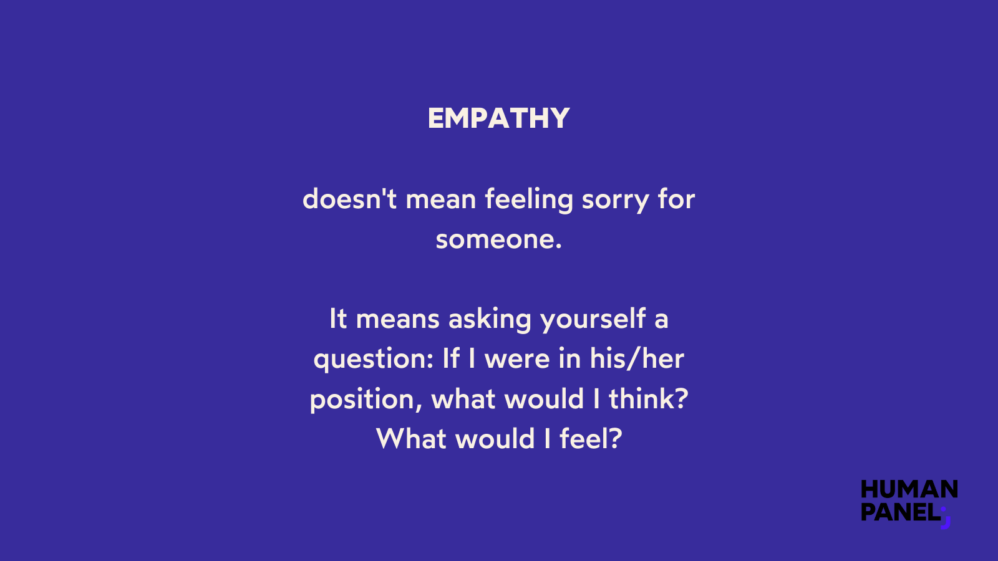How empathy in leadership helped us survive the pandemic – with Ewelina Kubaśka

HR metrics and turnover costs are important, but there’s one thing we all need even more in organizations: empathy in leadership.
“Empathy is the most important leadership skill”, Forbeshas written recently. In her well-received article, Tracy Bower, PhD explored how empathy in leadership contributes to positive outcomes for individuals and teams.
According to a new study by Catalyst, the constructive effects of empathy include more innovation, higher engagement, better employee retention, more inclusiveness, and a better work-life balance.
The results include:
- When people reported that their leaders were empathetic, they were more likely to report being able to innovate – 61% of employees compared to only 13% of employees with less empathetic leaders.
- 76% of people who experienced empathy from their leaders said they were engaged, compared to only 32% who experienced less empathy.
- 57% of white women and 62% of women of color said they were unlikely to consider leaving their company if they felt their circumstances were respected and valued by their company. However, if they did not feel their circumstances were respected, only 14% of white women and 30% of women of color said they were unlikely to leave their company.
- 50% of people with empathetic leaders said their workplace was inclusive, compared to only 17% of people with less empathetic leaders.

Virtual leader and empathy in leadership
For a long time, empathy was considered a “soft” and “feminine” skill, and most companies lacked it in their work culture. However, research has shown that it is necessary to create a friendly work environment. As Businessolver Workplace Empathy Monitor revealed, before Covid 19, 77% of employees were willing to work more hours for a more empathetic workplace.
Harvard Business Review showed that companies that prioritize empathy outperform other companies by 20%. And as many as 92% of HR executives note that a compassionate workplace is vital to employee retention.

The importance of empathy cannot be understated, especially in the extremely stressful times we live in.
One person who understands this importance is Ewelina Kubaśka, HR specialist at Hilton Garden Inn Krakow Airport Hotel The hotel industry was among those hit hardest by the COVID-19 crisis, with many hotels remaining almost completely shut down during the past closures.
“For us, the year 2020 will always remain the symbol of the pandemic and the time of unprecedented changes that we had to adapt to. These changes later became the seed for the new quality of our work at the hotel,” said Ewelina Kubaśka in an interview with Human Panel. She agreed to tell us what it took to survive the pandemic and maintain team morale, and what lessons can be learned from the COVID-19 crisis.
1.Upskilling the workforce
Like other hotels, Hilton Garden Inn Krakow Airport Hotel had to implement significant changes enforced by formal and government sanitary regulations. Those employees whose physical presence was not critical to hotel management began working remotely. Others upskilled or took additional training and began to support other teams.
“Our priority was to maintain health safety and as many jobs as possible. We changed the working hours and responsibilities of our employees, but luckily we were able to keep almost all of them,” says Ewelina Kubaśka.

2. New projects
Since the hotel had very limited capacity to accommodate guests, the team decided to take on other challenges. “The impact of our brainstorming produced two projects, which turned out to be very successful: a takeaway restaurant Bistro 590 and Pizza 590 and Christmas packages with our signature products,” says Ewelina.
“The takeaway restaurant meant we could make our waiters, chefs, reception and marketing staff busy. We invested in scooters and hired a driver to deliver the food. The project not only gave us work. It engaged us and gave us hope and a reason to get involved and focus on something rather than just waiting for the restrictions to stop and the guests to come back,” she adds.
3.Empathy in leadership
The pandemic caused multiple types of stress, frustration and uncertainty for most of us. Planning was almost impossible – both in our personal and professional lives. Our world was turned upside down and we had to learn how to behave in a new, complex and uncertain reality.
This is where empathy can manifest itself best – in a virtual leadership.
“Our board supported us as best they could. We were all regularly informed about the current situation, further plans and possible scenarios,” said Ewelina Kubaśka. “Our leaders understood that we all needed more empathy and mindfulness, and more attention paid to our feelings and emotions.
The leadership style changed – it was now based on communication and compassion. We all listened to each other and motivated each other every day.
Ewelina Kubaśka
4. New job market after the pandemic
The post-pandemic period was difficult for the hotel industry. The months of closures forced many people to re-skill and find other jobs. Ewelina Kubaśka has kept a close eye on those trends.
“In early 2020, I noticed an influx of applications, even from candidates who had never worked in the hotel industry before. On the other hand, between October 2020 and February 2021, no hiring processes launched in any of Kraków’s hotels. In the first quarter of 2021, the trend started to reverse – the number of job vacancies increased. As time went by, it only became more difficult to recruit kitchen, reception or maintenance staff,” says Ewelina Kubaśka.
Ewelina added that in Q2 and Q3 2021, the number of hotel jobs in the region increased by 250% – and so did salaries. Finding candidates became extremely difficult. Some openly admitted to getting paid under the table, others did not appear for interviews (up to 30% of applicants).
“This prompted us to improve our hiring and onboarding processes and candidate experience. Today, our onboarding is much more in-depth and thorough, and every new hire is assigned a buddy to guide them through their first few weeks. Evidence shows that an effective onboarding strategy contributes to higher employee retention and increases employer branding effectiveness. This is also a clear example of how well-structured HR processes impact business KPIs and the company as a whole,” Ewelina added.

5. HR analytics
The pandemic has compelled many companies to take an even closer look at data and numbers. Ewelina Kubaśka has always had a data-driven attitude towards HR, and she closely follows HR metrics and trends.
For her, the most important HR metrics she tracks are:
Recruitment:
- Source of application
- Quality of application
- Compensation benchmarks and financial expectations of the candidates
- Candidate experience
Employee lifecycle:
- Onboarding experience
- Employee satisfaction
- Employee engagement
- Turnover
Finance:
- Compensation benchmarks and structure
- Recruitment costs
- Turnover costs
Do you track those metrics in your organization? If not, take a look at what HR metrics you can track with Human Panel.
How to calculate turnover costs?
A few weeks ago, Ewelina shared a post on her LinkedIn profile about turnover costs. It sparked a widespread discussion about the money that companies miss out on due to poor employee retention.
“Business leaders sometimes do not realize that turnover costs are more than just the cost of hiring a new person,” Ewelina explained. “That being said, we also need to consider the engagement of other employees when onboarding new hires. What’s important is that an employee who leaves is usually less motivated and less efficient – which results in others having to take over his or her duties,” she added.
It is worth it to calculate the turnover costs for each team individually and assess what they are. If turnover rates are above the market average, we need to find out why – and this is where people analytics can help.
Ewelina Kubaśka
“For example, if employees cite salary as the reason for leaving, salary increases could be more cost-effective than recruiting new employees, Ewelina Kubaśka explained.
Ewelina acknowledged that it is important to look at employees holistically – as people who need guidance, motivation and empathy to work. “Team building is a process that takes forever. Both HR people and leaders have the responsibility to motivate, encourage and engage our employees every day. And we should do this with empathy and openness to the needs of our employees and each other,” Ewelina concludes.
Does your turnover rate bother you? Or maybe you’re unsure about the total costs of turnover in your organization and you would like to calculate it better? If you want to be an effective leader in a virtual environment, there is no time to waste. Sign up for our free demo and see how people analytics can help you lower the turnover and boost the engagement of your remote team.



